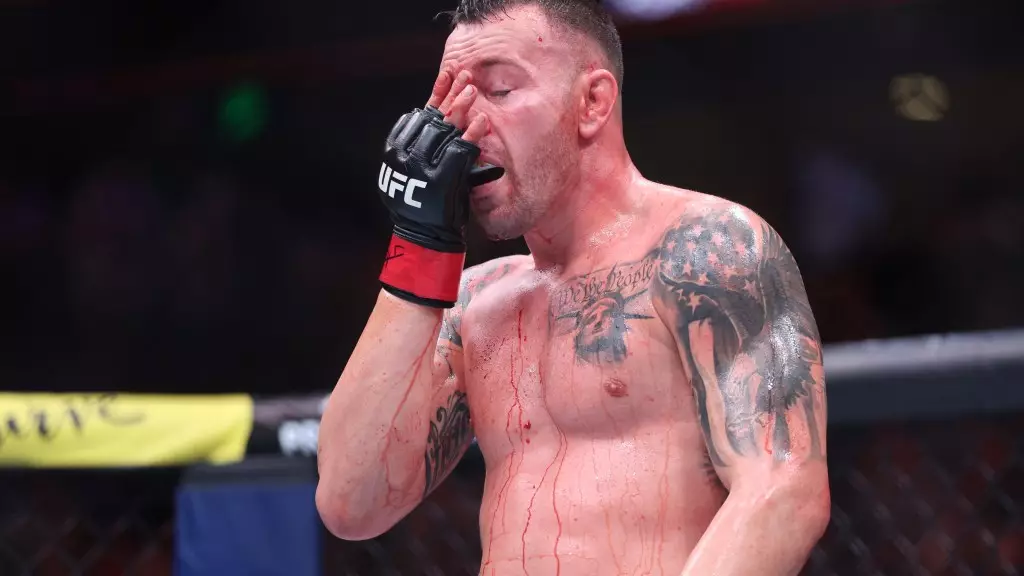Colby Covington’s recent bout at UFC on ESPN 63 against Joaquin Buckley marked a significant moment in his mixed martial arts (MMA) career. Returning after a year-long hiatus, Covington faced formidable challenges, which became evident when he was cut on the right eyelid early in the fight. The stakes were exceptionally high; not only was Covington aiming to reclaim his standing in the UFC welterweight division, but also he was contending with the physical fallout of a significant injury.
As the fight progressed, it was clear that the injury was taking its toll. The ringside physician ultimately called a halt to the contest in the third round due to Covington’s severe cut. This stoppage not only deprived Covington of a chance to fight through adversity but also signified his first consecutive loss in his career—a rare and noteworthy occurrence for someone with his level of experience and competitiveness. While many fighters may express frustration or anger at a decision like this, Covington’s reaction—or lack thereof—seemed to indicate a level of acceptance about his circumstances.
UFC President Dana White offered his thoughts on Covington’s behavior during the fight’s conclusion, indicating that there was a certain understanding from Covington regarding the stoppage. White credited Covington’s toughness, remarking on his determination to fight through the pain. However, he also noted that Covington’s resilience had limitations, stating, “That alone tells you that the cut was bothering him big time.”
White’s insights varied with the context of the fight’s location. He speculated that in Nevada, a potential stronghold for MMA events, the outcome may have been different, suggesting that the fight might have continued despite the visible damage Covington sustained. This commentary raises intriguing questions about the standards applied to fight stoppages in different jurisdictions, as well as the varying reactions from fighters under duress.
The Toughness and Future of Covington
Despite the defeat, Covington’s resolve and the overall characterization of him as “tough as nails” exemplify the spirit of a true fighter. He has established himself as not only a skilled athlete but also as one whose fighting ethic garners respect—whether one likes his personality or not. The notion that he willingly exposed himself to significant danger by continuing to engage in combat denotes a broader theme in combat sports: the line between bravery and recklessness is often blurred.
Looking to the future, Covington faces a critical crossroads. Will he reinvent himself after this setback, or will he rally to reclaim his place among the welterweight elite? Only time will tell. But one thing is certain—his unwavering determination in the face of adversity will be a fundamental aspect of his journey moving forward.

